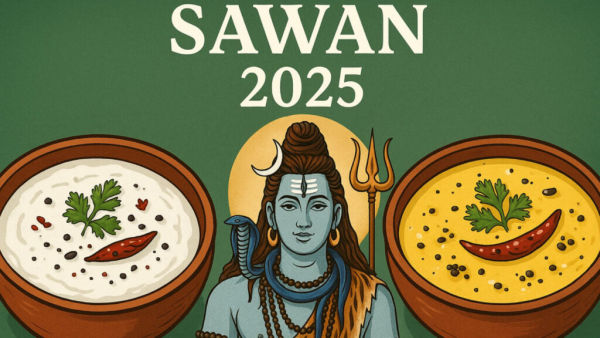
Sawan 2025: The holy month of Sawan starts from 11 July 2025, which will end with the full moon on 9 August. This month dedicated to Lord Shiva is considered a symbol of devotion, fast and special discipline. Devotees take special vigilance about fasting, Jalabhishek and worship as well as catering during this period.
It is said that during the month of Sawan, the consumption of certain things should be avoided, including curd, kadhi and raita. Along with religious beliefs, scientific reasons are also given behind this. Let us know why the consumption of curd and kadhi in the spring is considered taboo.
In the month of Sawan, Shiva devotees are advised to avoid curd and things made from it. According to Ayurveda, things made from milk and curd such as Kadhi and Raita are considered harmful to health. Also, consumption of raw milk is also prohibited, because it is offered to Lord Shiva.
Religious belief says that there is a tradition of offering raw milk on Shivling in Sawan. In such a situation, devotees should not drink this milk themselves. Similarly, items made from curd such as raita or kadhi are also considered prohibited in worship, because they do not fall in the category of pure diet.
The month of Sawan is associated with the monsoon. During this time, moisture in the atmosphere increases, which weakens the digestive system of the body. Acidic properties present in yogurt can prove harmful to the body at this time.
Things like Kadhi and Raita are cold, which negatively impact digestion in this season. During the rainy season, insects and insects thrive on the grass, which are grated cows, goats and buffaloes. In such a situation, questions are also raised on the purity and quality of milk, which can cause the consumption of things made for health.
Stomach diseases such as indigestion, gas, acidity and diarrhea increase.
There is a high risk of bacteria and infection in the weather, which can spoil items made of milk and curd quickly.
For people whose immune system is weak, these things can prove to be even more harmful.
Disclaimer: This article is based on religious beliefs and general information, JBT does not confirm it.